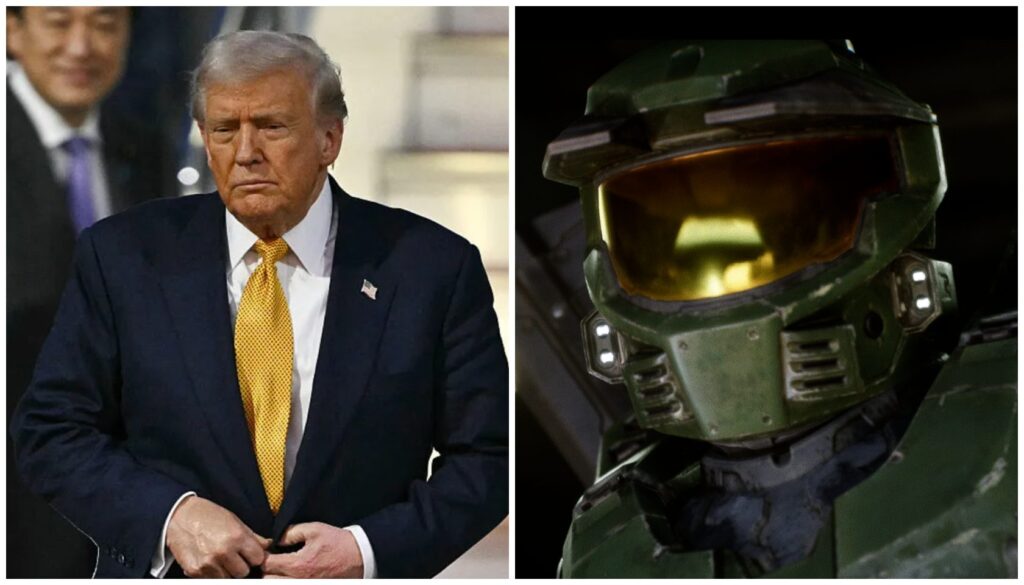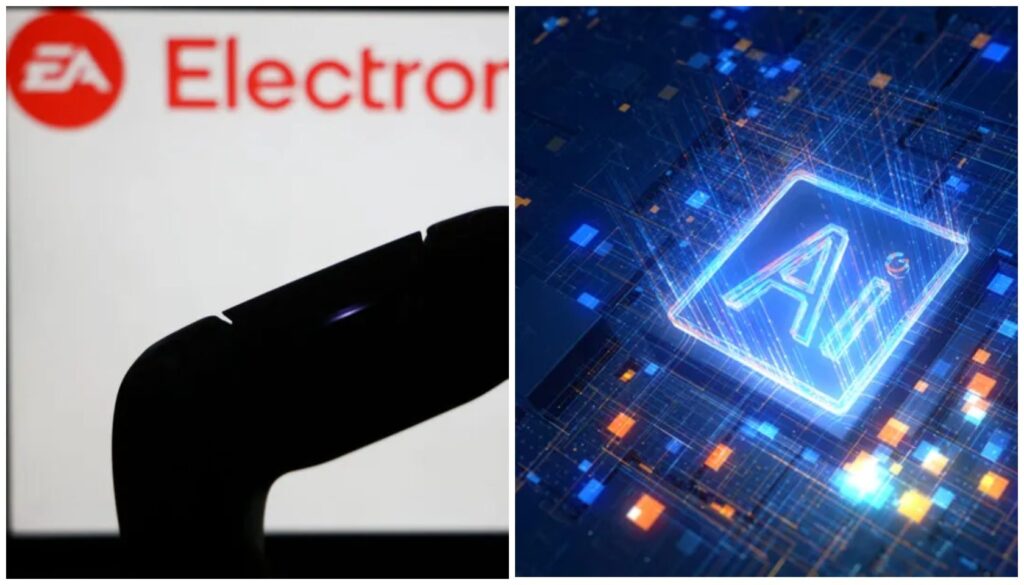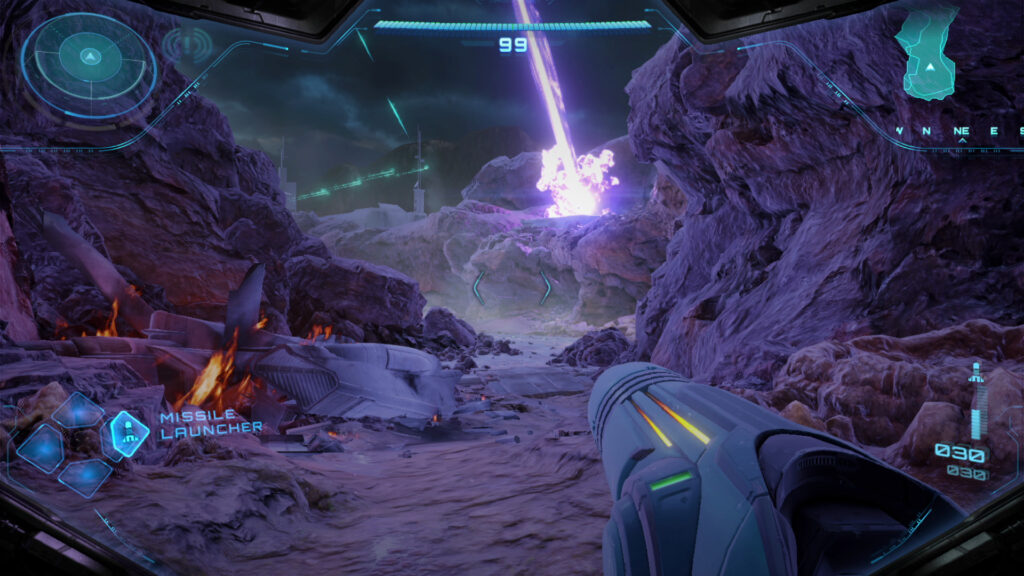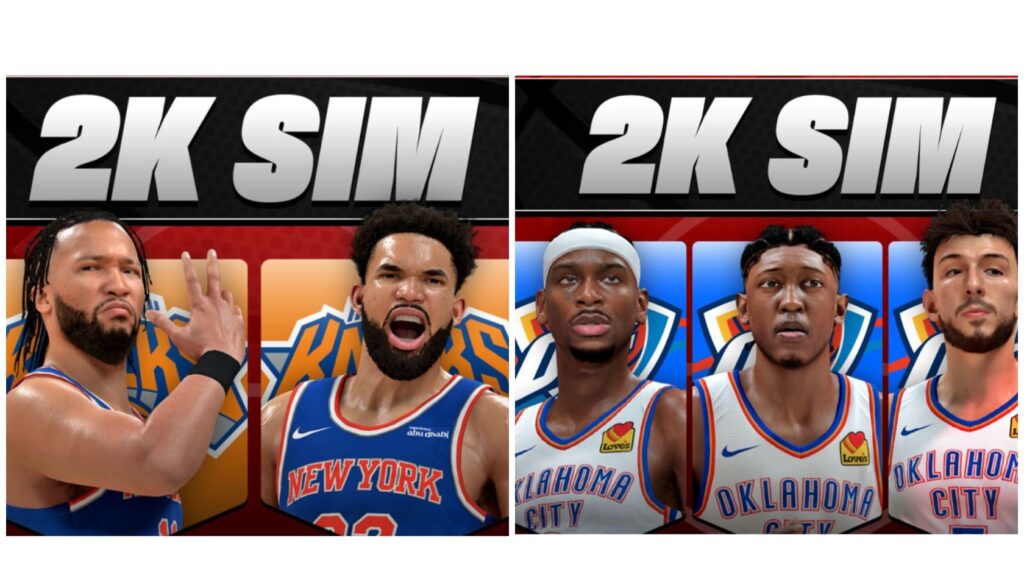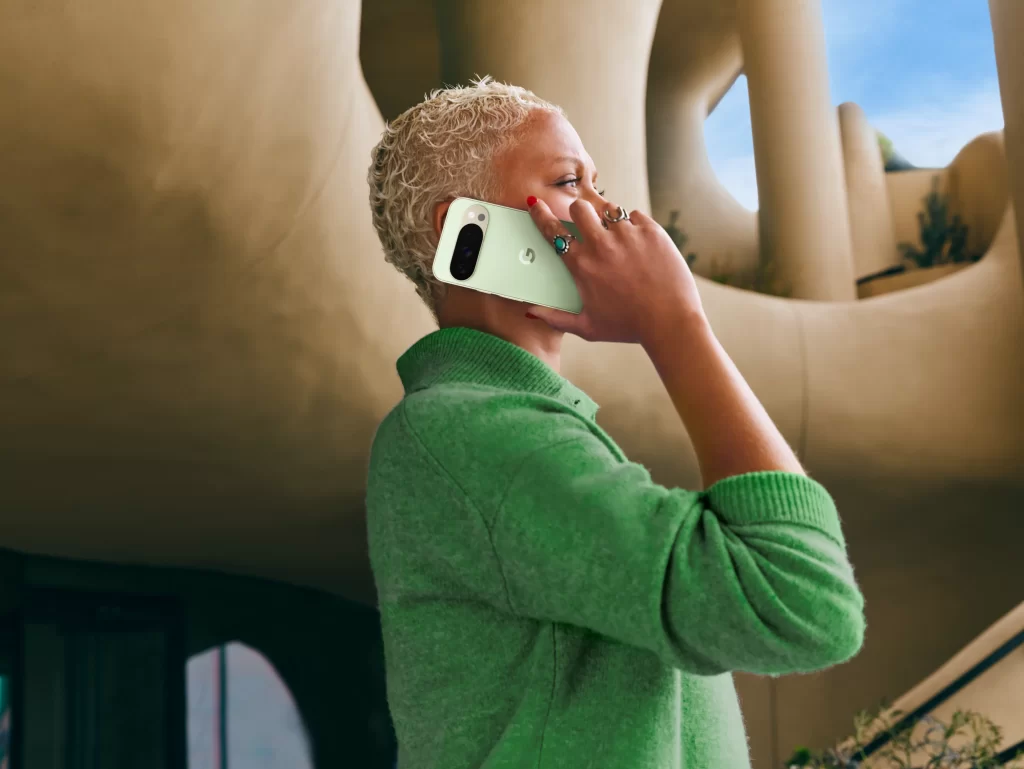tech
Page: 6
NurPhoto / Electronic Arts
After being acquired and on the verge of going private, Electronic Arts saw its sales fall 13% year over year in the July-September quarter, according to its latest earnings report.
The company announced it will also stop holding quarterly Q&A calls between analysts and EA leadership, something it has done for years, and will no longer share forward-looking financial guidance.
Variety reports the company’s decisions could be tied to the $55 billion acquisition deal that will see the Saudis and Jared Kushner’s Affinity Partners and Silver Lake Group take control of the video game developer.
The Sept. 29 acquisition hasn’t been completed yet, but is on track to be completed by next spring.
Per Variety:
Love Games? Get more! Join the Hip-Hop Wired Newsletter
We care about your data. See our privacy policy.
Wall Street forecast earnings per share (EPS) of 35 cents on $1.87 billion in revenue for the quarter, according to analyst consensus data provided by LSEG. EA reported non-GAAP diluted EPS of 54 cents on $1.82 billion in net bookings ($1.84 billion in revenue).
That net bookings figure was down 13% from the $2.1 billion in net bookings EA posted from July-September 2024, which EA attributes to especially strong sales for “College Football 25” at that time.
Despite sales falling, EA CEO Andrew Wilson expressed optimism in a letter sent to shareholders.
“Across our broad portfolio — from ‘EA Sports’ to ‘Battlefield,’ ‘The Sims,’ and ‘skate.’ — our teams continue to create high-quality experiences that connect and inspire players around the world,” Wilson said. “The creativity, passion, and innovation of our teams are at the heart of everything we do.”
We shall see if that optimism remains if the sales numbers don’t improve.
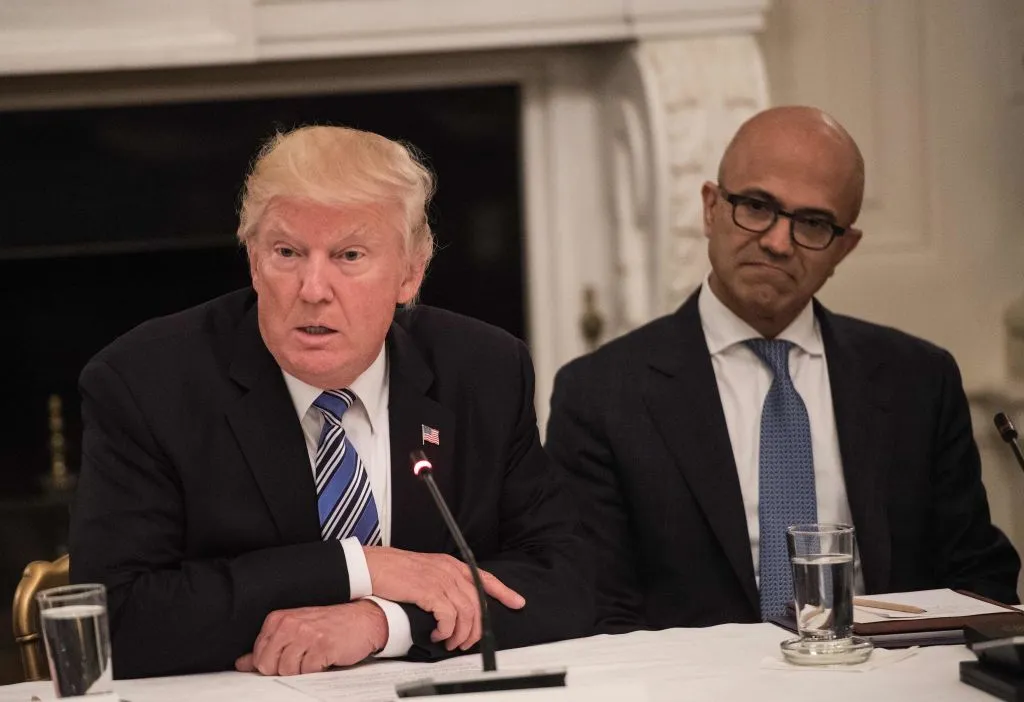
NICHOLAS KAMM / Microsoft / Donald Trump
Well, this isn’t surprising. Microsoft is biting its tongue following Donald Trump’s latest AI-generated slop featuring himself as Master Chiefand DHS using Halo to promote ICE.
While the country faces a wave of uncertainty amid the government shutdown that is now in day 28, the Trump administration showed how unserious it is after White House officials shared an AI-generated photo of Trump as Halo’s main protagonist, Master Chief, standing in front of the White House while saluting an American flag with only 40 stars.
Trump’s ridiculous AI-generated image managed to steal Halo Studios’ thunder, which just announced Halo: Campaign Evolved, a complete remake of the 2001 game Halo: Combat Evolved that will also mark Master Chief’s arrival on the PlayStation 5.
But that wasn’t the only disgusting post. The Department of Homeland Security also got in on the act, sharing a Halo-themed photo with the “DESTROY THE FLOOD JOIN. ICE. GOV.”
Microsoft’s silence shouldn’t come as a shock to anyone. The company’s CEO, Satya Nadella, has already kissed Trump’s ring, attended his inauguration, and Microsoft has donated to the construction of the ugly White House ballroom, plus has many federal contracts.
You know who’s not staying silent, the White House, and they responded to journalist Alyssa Mercante when she reached out for comment on the matter.
Like we said in our previous post on the image, Trump would probably take credit for ending the “console wars,” and that’s precisely what happened in the statement.
“Yet another war ended under President Trump’s watch—only one leader is fully committed to giving power to the players, and that leader is Donald J. Trump. That’s why he’s hugely popular with the American people and American Gamers.”
This administration is definitely the worst.
People Who Used To Be Involved With Halo Are Speaking Out
But some individuals who were involved with Halo at one point have expressed their displeasure with DHS/ICE’s recent posts.
Marcus Lehto, co-creator of Halo and lead designer of Master Chief, spoke with Game File’s Stephen Totilo, calling the DHS’s post “absolutely abhorrent.”
He continued, “It really makes me sick seeing Halo co-opted like this.”
Jaime Griesemer, a chief designer on several of the early games, told Game File that he found Trump’s Master Chief post funny but opposed the ICE post.
“Using Halo imagery in a call to ‘destroy’ people because of their immigration status goes way too far, and ought to offend every Halo fan, regardless of political orientation,” Griesemer said. “I personally find it despicable. The Flood are evil space zombie parasites and are not an allegory to any group of people.”
You can see more reactions below.
Trending on Billboard ASCAP, BMI and SOCAN have all adopted policies to accept registrations of musical compositions partially generated using artificial intelligence (AI) tools, the PROs jointly announced Tuesday (Oct. 28), while noting that they will continue to reject registrations of fully AI-generated works. According to a press release, all three PROs define a partially […]
Getty Images / Donald Trump / Halo: Campaign Evolved
Donald Trump and his extremely corrupt administration continue to use video games to push his divisive agenda.
Halo Studios is coming off the announcement of Halo: Campaign Evolved, the remake of the iconic first game, Halo: Combat Evolved, that will bring Master Chief to the PlayStation for the first time, and now the studio is probably big mad that Donald Trump and his administration are using their game to promote divisiveness within the country.
In what has become “I can’t believe this is really a moment,” the official White House account on social media shared more AI-generated slop of Donald Trump wearing Master Chief’s Spartan armor while saluting an American flag with a pronounced and egregious error.
The White House’s headscratching post was a response to GameStop’s latest cringeworthy post announcing the end of console wars, and finally, the announcement of Halo coming to the PlayStation 5.
Clearly, the White House intern in charge of posting on the account knows a bit about gaming, as the post’s caption read “Power To The Players,” which is GameStop’s slogan.
We have no idea why the White House would comment on this, but we assume it has to do with Trump’s unproven claims that he has “ended eight wars,” so now he thinks he can add this one to that list.
Don’t be shocked if Trump moronicaly mentions this as a war he brought to an end.
DHS Also Used A Halo-Themed Meme
But that wasn’t the only Halo-themed meme shared by this disastrous administration.
DHS (Department of Homeland Security) also got in on the act and shared a photo from Halo featuring Master Chief in a Warthog with “Destroy The Flood, Jone. ICE. GOV” written across the picture, referring not to the symbiotic alien species from the game but to undocumented immigrants.
This latest video game-themed post follows the distasteful Pokémon video putting detained undocumented immigrants’ faces on Pokémon cards, and another video using DaBaby’s music to show its new vehicles to harass law-abiding immigrants.
It remains to be seen if this tactic is actually helping with recruitment, as ICE is currently struggling to grow the numbers, and some ICE recruits are showing up without being properly vetted.
We wished we could hit reset on this trash video game immediately. All you folks had to do was vote for Kamala Harris.
Just saying.
Also, we can’t count on Microsoft to handle this because ceo Satya Nadella is one of the many who have already kissed Trump’s ring.
You can see more reactions below.
Getty Images / EA / AI
AI (artificial intelligence) is still a boogeyman in the gaming space, but EA (Electronic Arts) is all-in on it.
After their eye-watering $65 billion buyout at the hands of the Saudis and Affinity Partners, which was founded by Donald Trump’s son-in-law, Jared Kushner, there is more news coming out regarding the popular video game publisher that will make the stomachs of gamers turn.
Electronic Arts announced a partnership with Stability AI, the creator of the AI image generation tool Stable Diffusion.
According to EA, the main goal of the partnership is to “co-develop transformative AI models, tools, and workflows” to help game developers speed up development while maintaining quality.
“I use the term smarter paintbrushes,”Head of Technical Art for EA SPORTS, Steve Kestell, said in the announcement. “We are giving our creatives the tools to express what they want.” To start, the “smarter paintbrushes” EA and Stability AI are building are concentrated on generating textures and in-game assets. EA hopes to create “Physically Based Rendering materials” with new tools “that generate 2D textures that maintain exact color and light accuracy across any environment.”
Love Games? Get more! Join the Hip-Hop Wired Newsletter
We care about your data. See our privacy policy.
EA also claims that its partnership with the company will allow them to use AI to “pre-visualize entire 3D environments from a series of intentional prompts, allowing artists to creatively direct the generation of game content.”
EA Wants To Cut Game Development Time With Its New Partnership
The move isn’t surprising, as the gaming industry is increasingly integrating AI into game development.
With EA on the verge of being bought out, the company will be saddled with a lot of debt, so using AI could be a cost-effective way to deliver AAA games without the bloated development costs.
Also, game development times have increased significantly, with many gamers complaining that it takes too long for these big-name titles to hit shelves, so finding a way to cut that time in half without sacrificing quality is always welcome.
BUT —and this is a huge BUT —no one wants to see humans replaced by AI to accomplish this goal.
Trending on Billboard On Wednesday (Oct. 22), around fifteen employees in U.S. and Latin American music roles at TikTok and ByteDance across multiple territories were told their positions were terminated, according to sources close to the matter. Two sources say a number of those impacted will have their accounts on the company’s business management platform, […]
Nintendo / Metroid Prime 4: Beyond
Mouse controls on the Nintendo Switch 2 might be one of the console’s most niche features, but after experiencing them with one of the console’s most anticipated titles, a case could be made that they be among the most innovative design choices.
When Nintendo first announced that mouse controls would be a thing with the Nintendo Switch 2, I had to admit, I let out the loudest of “MEHS” while watching the Switch 2 reveal stream.
Then, people who got their hands on the device tried out the mode and were not impressed, which only added to the skepticism I already had.
Love Games? Get more! Join the Hip-Hop Wired Newsletter
We care about your data. See our privacy policy.
Add the reviews for Drag x Drive, the wheelchair basketball that uses the Switch 2’s mouse controls, also didn’t help sell it for me.
But that all changed when I played Metroid Prime 4: Beyond.
While at the holiday preview for Nintendo, I was very excited to learn that I would finally get to play Metroid Prime 4: Beyond, in addition to previewing other titles on the Nintendo Switch 2.
Upon sitting on the couch, the guide totally took the wind out of my sails when he said, “Are you ready to play Metroid Prime 4: Beyond… with the mouse controls?”
Now, this is a game I never envisioned myself playing on PC, because that’s not how I enjoyed the previous titles in the franchise, but that all changed with this brief experience.
Mouse Controls With Metroid Prime 4: Beyond Felt Right
It wasn’t a smooth transition from controlling the legendary space bounty hunter with a controller to using mouse controls; in fact, it was a clumsy experience at first.
There were multiple times the guide had to show me what to do as I tried to get comfy with the setup, but when I did, I was honestly very impressed with how well and intuitively the mouse controls were with Metroid Prime 4.
It just felt right to move Samus with one Joy-Con and aim and shoot with the other. Using the scan mode was a breeze, taking out enemies was fun, and the one boss battle I got to experience was exhilarating.
The mouse controls were actually clutch, especially when aiming at the boss’s vulnerable spots to damage it. Once it was defeated and the demo ended, I walked away thinking, Hey, I might actually play Beyond with the mouse controls when I get my hands on the game.
It also made me think that the possibilities are endless regarding how Nintendo can implement the mouse controls in other titles.
Nintendo / Metroid Prime 4
Metroid Prime 4: Beyond launches on December 4.
DOTEMU / Tribute Games / Marvel Cosmic Invasion
Marvel Cosmic Invasion has been teasing new characters for months, but it never had a release date, until now.
MCI is HIGH on our list regarding games we can’t wait to play, especially after getting hands-on with the beat ’em up at Summer Game Fest.
Developer Tribute Games and publisher DOTEMU have been teasing the hell out of us, dropping numerous trailers, teasing the game’s expansive roster of heroes to choose from to save the Earth and universe from Annihilus and the other Marvel villains joining him on a quest for domination.
Today, Tribute Games dropped another trailer —a teaser — two more heroes we can play with — and also the information many, especially Kinda Funny’s Greg Miller, have been screaming for: a blasted release date.
The Invincible Iron Man & Phoenix Join The Roster
First things first, joining the team of heroes will be Iron Man, voiced by Josh Keaton, who famously was Spider-Man in The Spectacular Spider-Man animated series, and Phoenix (Jean Grey), voiced by Jennifer Hale, the actual voice of the character from the X-Men 97 Marvel Animation series on Disney+.
Per DOTEMU:
Bring the pain right to Annihilus’ doorstep with the X-Man formerly known as Marvel Girl as she uses her massive telekinetic powers to crush the insectoid invaders. Or tag Phoenix out to slip into the steel, er, iron-toed boots of Tony Stark as Invincible Iron Man, beating back Annihilus’ baneful bugs with your mighty repulsor blasts or by powering up the iconic Iron Cannon.
Now to the vital news: Marvel Cosmic Invasion will arrive this year, officially launching on Dec. 1, right on time for the holiday season.
Consider us officially hyped!
You can see more screenshots from the game below.
Source: DOTEMU / Tribute Games
Source: DOTEMU / Tribute Games / Marvel Cosmic Invasion
Source: DOTEMU / Tribute Games / Marvel Cosmic Invasion
Source: DOTEMU / Tribute Games / Marvel Cosmic Invasion
Source: DOTEMU / Tribute Games / Marvel Cosmic Invasion
Source: DOTEMU / Tribute Games
Source: DOTEMU / Tribute Games / Marvel Cosmic Invasion
Visual Concepts / 2K / NBA 2K26
According to NBA 2K26, fans of the New York Knicks are in for a season they have been longing for, but will ultimately suffer heartache.
The official 2025-26 NBA season tips off today, but NBA 2K26, which is now the unofficial start to basketball season, has predicted a wide range of outcomes that some fans will appreciate, while others will label it the purest of CAP.
Like with Madden, the folks at 2K decided to use NBA 2K26 to simulate the season to determine who would come out on top.
Unsurprisingly, coming out of the West will be last year’s champs, the Oklahoma City Thunder, who will defeat the Denver Nuggets in seven games in the Western Conference Finals to defend their title in the NBA Finals.
But what should give a lot of New Yorkers hope is that the game also predicted the New York Knicks, who have a new coach in Mike Woodson, will finally get over the Eastern Conference Finals hump, defeating the Cleveland Cavaliers in six games to face the Thunder in hopes of delivering the mecca of basketball its first NBA chip since 1973.
But for Knicks fans, their 2025-26 season will end in heartbreak because the OKC Thunder will repeat as champions, with NBA 2K26 cover athlete, Shai Gilgeous-Alexander, grabbing NBA Finals MVP honors and repeating as league MVP.
Other 2K Sim Predictions
We are intrigued to see how accurate this prediction is, given that it is based solely on the NBA 2K26 stat model.
2K also used the latest installment in the popular basketball video game franchise to predict this season’s Rookie of the Year, Defensive Player of the Year, Most Improved Player of the Year, as well as other stats.
You can see those results below.
Rookie of the Year
Defensive Player of the Year
Most Improved Player
All-NBA Teams
Google / Google Pixel
Pixel fans, Google is allegedly allowing you to get your hands on the next smartphone EARLY!
Google is among the giants—besides Apple and Samsung — that release a new smartphone annually, thanks to its solid Pixel lineup.
To help spread the word about the devices, Google has long enlisted the help of “Superfans” and now, reportedly, the tech giant is allowing a select few of them to get their hands on new Pixel devices before the general public can experience them.
Bloomberg reports that Google is running a contest among its “Superfans” that will see only 15 non-employees selected to test in-development hardware.
Love Technology? Get more! Join the Hip-Hop Wired Newsletter
We care about your data. See our privacy policy.
According to a document reviewed by the new website, the company describes the contest/program as an opportunity to “provide feedback and help shape a Pixel phone currently in development.”
That totally makes sense, because what better way to know if your new smartphone is a hit than letting actual smartphone users take it for a spin, especially those who primarily use Pixel phones. But that begs the question, will they only get high praise, or constructive criticism?
How Do You Become A Pixel Superfan?
So how do you sign up? ArsTechnia reports that “interested Superfans have to prove they are more super than the rest. They must demonstrate deep knowledge of the Pixel product family and suggest ways the phones can be improved.”
Giving Superfans access to unreleased smartphones is the latest perk. Those already in the program enjoy benefits like freebies and other special perks.
If you’re interested in becoming a Superfan, you can head here to sign up, and hopefully, you will be selected to test the upcoming Pixel phone. Of course, if you are selected, you will have to sign a non-disclosure agreement, because for whatever reason, details about Google’s Pixel smartphone always seem to leak on the internet.

 State Champ Radio
State Champ Radio 

